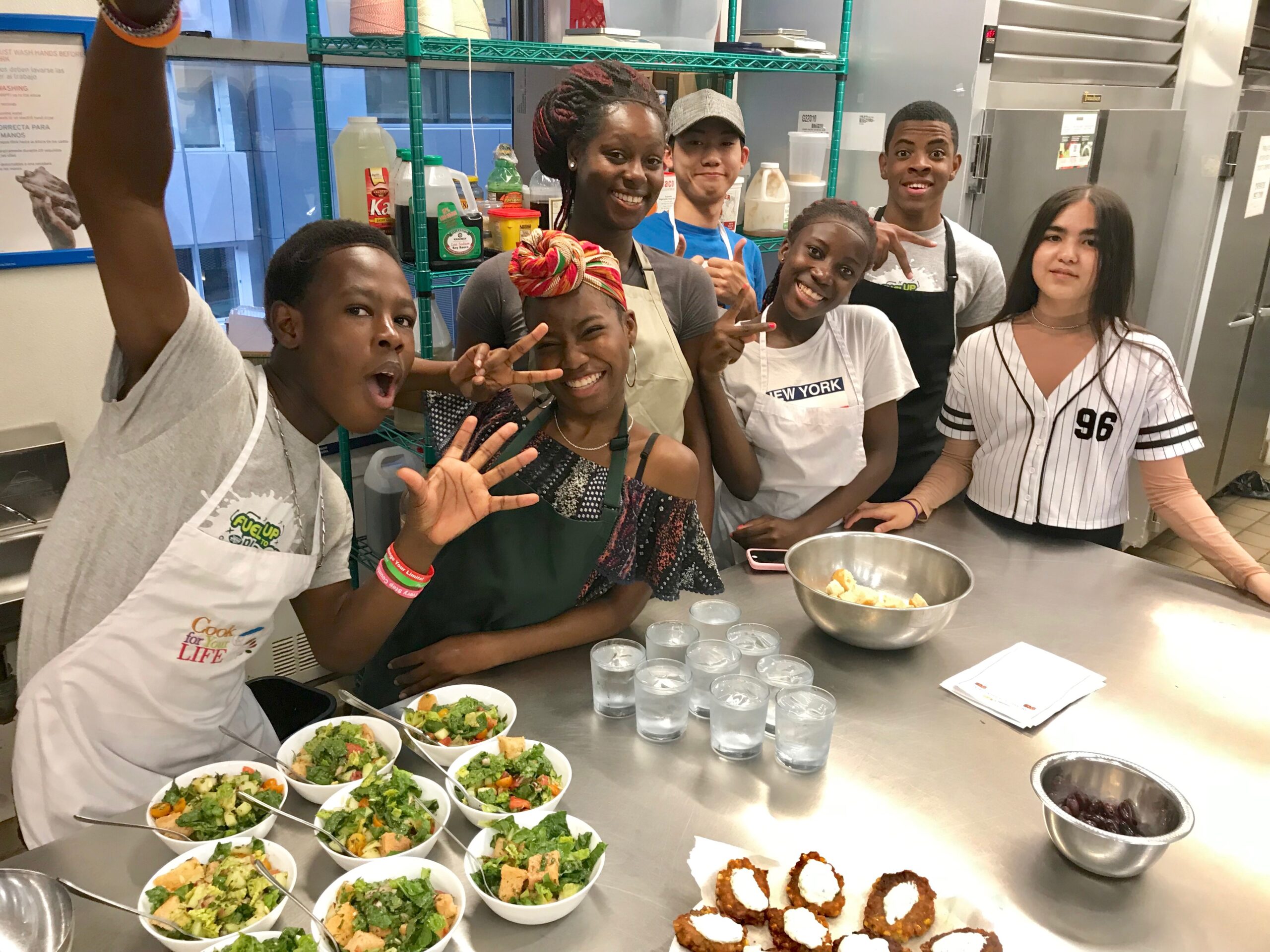The Three Hidden Reasons Food Education Ignites Youth Development

By Lynn Fredericks, Founder and CEO, FamilyCook Productions
I’ve worked with adolescent youth in food education for over two decades. Like many people, I initially had my trepidations because adolescents don’t like rules and they are rarely shy when being bored or unhappy. As I began working with this age group, my own children were not yet adolescents. To prepare, I studied child development and recognized that when I expressed high expectations to young people about what they can achieve, they invariably step up and meet those expectations.
Bringing that around to teaching youth how to cook healthy recipes, I made sure the classes in our programs were quite challenging, fast-paced and very social. These components along with the exciting alchemy that kids experience as they transform basic food ingredients into surprising and delicious meals, not only had youth loving the class, but they also matured and developed striking new attributes. Hence, through our program, I came to identify how this education was a phenomenal tool for youth development.
Three reasons why healthy cooking classes ignite positive youth development
1. Creating with your hands yields a sense of accomplishment. Social scientists and psychologists have been very vocal in the last few years to send a message about the importance of all thought to learn in ways that don’t involve screens. Even before the advent of smartphones, we could see how powerful youth react to creating something new. As they watch their skills improve from week to week, and cooking tasks become easier, they begin to reconsider their own potential and what they believe they are capable of. This is not about becoming a chef (though it could be); it’s about the excitement of discovering new capabilities and recognizing that they have more potential than they previously considered.
Adolescence can be a period of intense insecurity and self-doubt. Identifying skills which are assigned a value in the adult world is the foundation for youths to believe more in their self worth and expect more of their future.
2. Cooking together stimulates camaraderie and the desire to work toward a common goal. As I began this work, countless young people were reluctant to participate in the ‘team’ part of our program Teen Battle Chef, where youth ‘battle’ via recipe demos conducted in teams. One after another they would exclaim they preferred to work alone rather than in a small group. Yet our program thrust them into a group setting and – sink or swim, they had to find a path to collaboration as the timer ticked and the alarm would mean your prep- time was over – time to present your recipe demo! Each week I’d see how they came to appreciate being able to rely on each other for their different strengths. “You mince the garlic, you get it really fine,” they would acknowledge to one of their peers, and another “can you slice the carrots into matchsticks, your knife skills are fast.”
Before you knew it, the very kids who were shy working in a group looked the happiest. They smiled and laughed easily, joked around with their team mates and were transformed from being super self conscious to increasingly confident and commanding of the demo presentation. This confidence and ease within their peer group is a huge accomplishment and success indicator as very few careers in modern society are suitable to a loner personability.
3. Being held accountable develops maturity and a work ethic. When young people work together toward a common goal – everyone really has to pull their weight. Their peers will absolutely be annoyed if someone does not do their share of the work. This is especially the case if this becomes a pattern, that someone does not fully contribute time and effort. Youth will speak up and hold their peers accountable to the team effort if someone is slacking. It’s amazing to watch them develop this sense of accountability, essentially on their own.
As a result, this experience of being held accountable by your teammates brings up the sense of a young person’s worth ethic, how they perceive the idea of ‘working hard,’ and fulfilling the expectation of their contribution. A very immature young person may ‘blow off’ a task or even the importance of what they contribute to the group recipe effort. This will not last long; they will begin to sense that their work is valued and it is needed and people are depending on him or her. This will result in a leap of maturity. It’s so very exciting to see this happen. One day a young person is trying to explain away having not lived up to their assigned role and then another day, after being sanctioned by their group, they shape up to stay in their good graces.
Collaborating to make a delicious recipe that everyone will enjoy and benefit demonstrates to young people that they 1) indeed have things of value to contribute; 2) they want to contribute to the group goal; and 3) a greater sense of maturity about what it means to be accountable to a group effort. This can only enhance further over time as repetition of the team work reinforces that living up to others expectations and making a contribution is part of maturing, operating in a workplace and even being accountable to that team for one’s one part of the whole.
